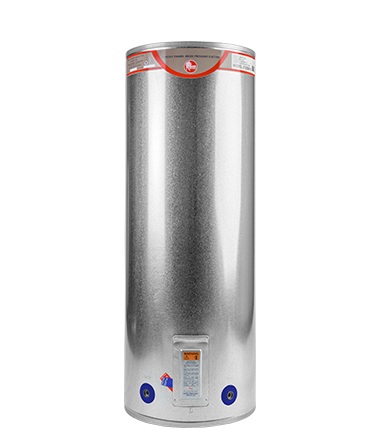Heat Pump Hot Water Cutting Energy Costs and Carbon Footprints
In recent years, the push towards more sustainable and energy-efficient technologies has grown significantly. One such technology that has garnered attention for its environmental and economic benefits is the heat pump hot water system. This system is not only an excellent way to cut energy costs but also significantly reduces carbon footprints, contributing to a more sustainable future and for more information visit heat pump hot water.
Introduction to Heat Pump Hot Water Systems
A heat pump hot water system is an innovative technology that heats water by extracting ambient heat from the air, ground, or water, and transferring it to the water storage tank. This process is highly efficient compared to traditional electric or gas water heaters, as it uses far less energy to achieve the same result. Heat pumps operate similarly to refrigerators but in reverse – instead of removing heat from an enclosed space and expelling it outside, they draw heat from the environment and use it to heat water.
How Heat Pump Hot Water Systems Work
The basic components of a heat pump hot water system include the evaporator, compressor, condenser, and expansion valve. The process starts with the evaporator, which absorbs heat from the surrounding air or ground. This heat is then transferred to a refrigerant, causing it to evaporate. The gaseous refrigerant is compressed, raising its temperature significantly. This hot gas then passes through a heat exchanger (condenser), where it transfers its heat to the water in the storage tank. The refrigerant cools down and returns to its liquid state, ready to start the cycle again.
Energy Efficiency and Cost Savings
One of the main advantages of heat pump hot water systems is their superior energy efficiency. They can be three to four times more efficient than traditional water heaters because they move heat rather than generate it. For instance, for every unit of electricity consumed, a heat pump can produce three to four units of heat energy. This high coefficient of performance (COP) translates into substantial energy savings and lower utility bills for homeowners.
By consuming less electricity, heat pump hot water systems also reduce the demand on power plants, which often rely on fossil fuels. This reduction in energy consumption directly correlates to lower greenhouse gas emissions, making heat pumps an environmentally friendly choice. The cost savings from reduced energy bills can be significant over the lifespan of the system, often justifying the higher initial investment.
Environmental Benefits
Heat pump hot water systems are a key player in the fight against climate change. Traditional water heaters are significant contributors to household greenhouse gas emissions due to their reliance on fossil fuels. In contrast, heat pumps use ambient heat, which is a renewable energy source, and their efficiency reduces the overall energy required for heating water. This transition helps in reducing carbon footprints and mitigating global warming.
Additionally, heat pumps can be paired with renewable energy sources like solar panels to further enhance their environmental benefits. By using solar power to run the heat pump, homeowners can achieve a nearly zero-emission water heating solution, drastically cutting their carbon footprint.
Economic Incentives and Rebates
Governments and utilities around the world recognize the environmental and economic benefits of heat pump hot water systems and often provide incentives to encourage their adoption. These incentives can take various forms, including rebates, tax credits, and low-interest financing options. For example, in the United States, the federal government offers tax credits for energy-efficient home improvements, including heat pump water heaters. Many states and utility companies also provide additional rebates and incentives.
These financial incentives can significantly reduce the upfront cost of purchasing and installing a heat pump hot water system, making it more accessible for homeowners. Over time, the combination of energy savings and incentives makes heat pumps a financially sound investment.
Installation and Maintenance
Proper installation and maintenance are crucial to ensure the optimal performance and longevity of a heat pump hot water system. It's important to hire a certified professional for installation, as they can assess the best location and configuration for the system. Regular maintenance, such as cleaning filters and checking refrigerant levels, will help maintain the system's efficiency and prevent potential issues.
Conclusion
Heat pump hot water systems represent a significant advancement in energy-efficient home heating technology. By leveraging ambient heat, these systems provide a cost-effective and environmentally friendly solution for hot water needs. Their superior energy efficiency translates into substantial cost savings and reduced greenhouse gas emissions, making them an excellent choice for environmentally conscious homeowners.
The combination of economic incentives, long-term savings, and environmental benefits makes heat pump hot water systems a compelling option. As more people adopt this technology, we can collectively reduce our carbon footprint and move towards a more sustainable future. Investing in a heat pump hot water system is not just a smart financial decision but also a significant step towards environmental stewardship.
Contact Us:
Hot Water Solutions
3d Tait Place, Auckland
Email: info@hotwatersolutions.nz
Call Us: 0800 HWSOLU (497658)
Google map: https://maps.app.goo.gl/weuxr8LohUEv2ooj6
Social Links:
https://www.facebook.com/Hot-Water-Solutions-100885308035357/




Comments
Post a Comment